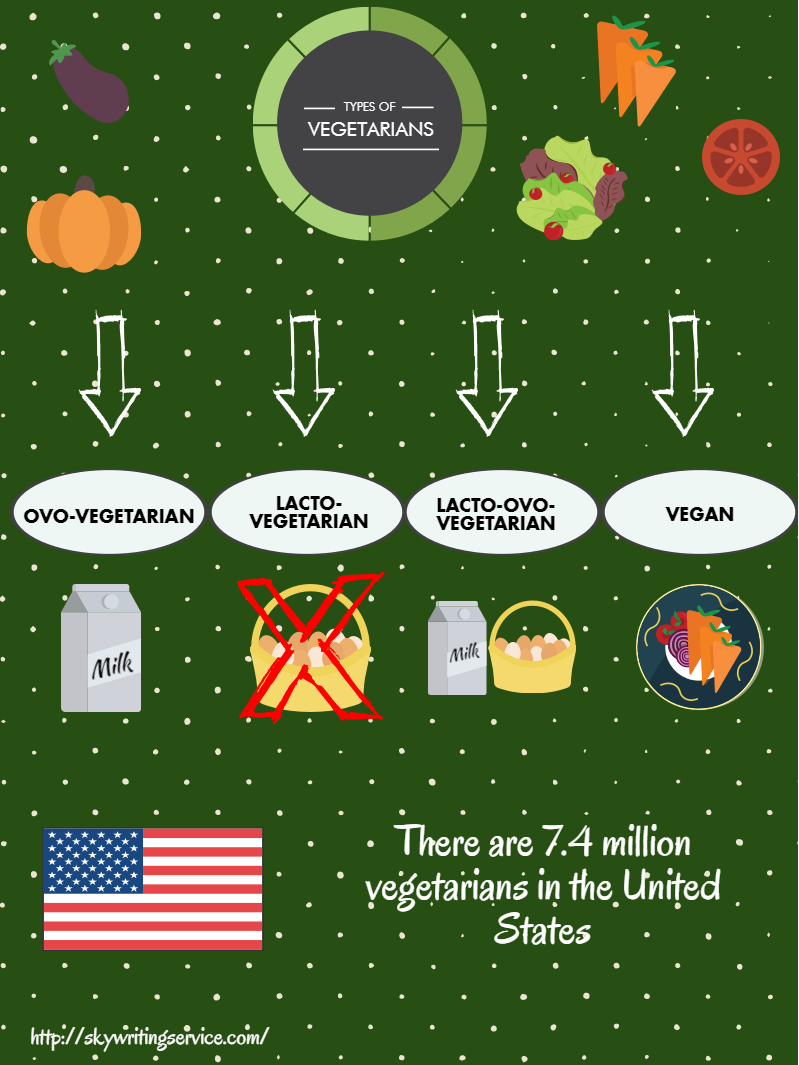Over the past few decades the number of adherents of vegetarianism has grown so much, that everybody knows about this way of eating. However, it is necessary to distinguish what it really is: fashion that will pass with time, or the whole philosophy, which entails not just another diet, but also a completely different life style?
We still do not know when exactly vegetarianism appeared. Some sources speak in favor of ancient India and China, while others are sure that vegetarianism was founded in Ancient Egypt. The term "vegetarian" appeared in England in 1847 with the first vegetarian society in Manchester. Many people believe that the word comes from the English «vegetable» (vegetables, plant), but the term comes from the Latin «vegetus», which means healthy, whole, in a deeper sense characterizes an individual as a strong and physically healthy person. Since then and until today, the popularity of vegetarianism only increases from year to year. According to various experts, about 5-10% of the population of the globe prefer vegetarian cuisine.

If we are talking about vegetarianism, it is worth noting an interesting feature. This way of eating is popular in developed countries, and it is associated with the pursuit of a healthier lifestyle, combined with spirituality and harmony. We can say with certainty that it is not just fashion, but also a lifestyle. People give up animal food, not only because it is harmful, but also as a protest against the killing of animals. By the way, in ancient times, many cultures believed that the meat of killed animals contained a large amount of aggressive secrets (including adrenaline) which affect people negatively. It was considered that before killing the animal it should be calmed down or it’s death should be sudden. Such trends have been observed in the East, in Egypt, and even in some European nations. Today, many members of vegetarianism refuse not only from animal food, but also from the leather and fur in their wardrobes.
Vegetarianism implies refusal from the use of any animal flesh (meat, poultry, fish), and sometimes food of animal origin (eggs, milk, cheese). However, such a definition is very conditional, because some "pseudo" vegetarians still consume chicken and fish, while others eat eggs and dairy products. According to such features, we can distinguish the following groups:
Actually vegetarian – no meat food, fish and seafood;
Lacto vegetarian - exclusion of meat and eggs from the diet, but it is allowed to eat dairy products;
Veganism - a complete rejection of animal products, including eggs, milk, cheese, and even honey;
Fruitarianism - diet is similar to the previous group, but preference is given to fruits;
Vegetarian raw food diet - the same diet as veganism, but the food is consumed exclusively in the raw form.
What are the advantages of vegetarianism?
Rapid food digestibility and, consequently, an early disappearance of hunger due to the large amounts of plant fibers. As a result, there is no discomfort after a meal. Also, vegetarians are said to be really energetic (because of the reduced blood flow to the digestive tract during the meal).
Copious amounts of vitamins and minerals (vitamins B and C, beta-carotene, a high content of potassium and magnesium), which will increase the body's resistance.
Excellent cleanability of the intestine and therefore the entire body. Firstly, the likelihood of blisters and the formation of the decay products of food (as a consequence of meet consumption), and secondly, fibers remove wastes from intestinal.
Prevention of cardiovascular disease and cancer, due to the lack of cholesterol in plant foods, as well as due to the presence anti- cancer terpenoids.
However, we must understand that a complete rejection from food of animal origin is fraught with serious consequences, which are the following:
The lack of a number of amino acids (the so-called "essential" amino acids that are not synthesized in the human body), which is extremely low in the content of plant foods;
Lack of vitamins D, B12 and others, which can lead to blood diseases and other diseases;
Exhaustion of the body because of prolonged consumption of plant foods only;
Developmental delay and serious irreversible consequences in the case of children's vegetarianism.
Celebrities, who are actively promoting vegetarianism, warmed up this topic and made it more popular. There are no doubts that considerable consumption of plant food can positively influence health and appearance of a person. However, it is a mistake to suppose that complete rejection from animal food will be painless. Anyway, it is still preferable to keep to a middle ground in the diet, and in case of refusal to eat meet, it is still recommended to consume milk, eggs and cheese. In case if we are speaking of the philosophy, then it is not a medical topic at all. Each of us can decide, what vegetarianism really is: experiment, a tribute to fashion or lifestyle?